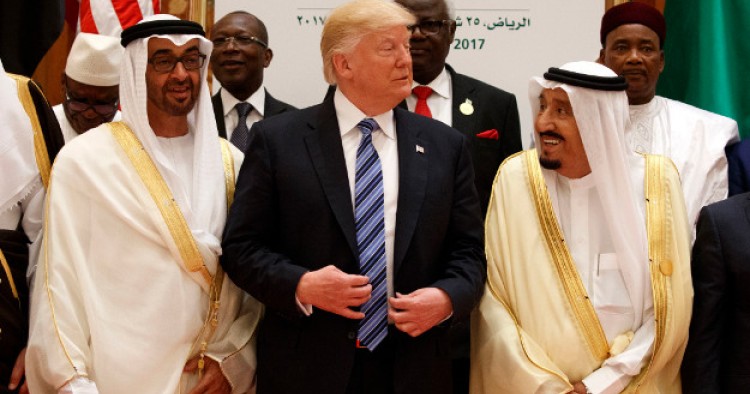Read the full article on DefenseOne.
Just weeks after Donald Trump told Arab and Muslim leaders that his administration is seeking “a coalition of nations who share the aim of stamping out extremism,” its prospects have been seriously damaged by the reemergence of a conflict among members of the Gulf Cooperation Council. Largely sparked by differences about political Islam, the tensions may have been escalated by the U.S. president’s own statements. Indeed, in a series of tweets early on June 6, the President appeared to claim responsibility for the conflict.
The dispute pits Qatar, which supports Hamas and the Muslim Brotherhood, against Saudi Arabia and the UAE, which take a much harder line against the groups. The proximate cause of the new contretemps was a mysterious speech allegedly delivered days after the Trump visit by Qatar’s emir, Sheikh Tamim bin Hamad. In the speech, Tamim supposedly extolled the virtues of Iran, praised Hamas as the “true representative” of the Palestinians, excoriated his Gulf allies, and criticized the United States. The Qataris insisted that the alleged remarks were bogus. Participants in the graduation ceremony insisted that Tamim had not spoken there. The Qataris ordered an investigation, inviting the FBI to assist. But the Saudi and Emirati responses were severe and unmoved by Qatar’s denials.
A hurried exchange of visits brought the Kuwaiti foreign minister, Sheikh Sabah Khaled al-Sabah, to Qatar, followed almost immediately by Tamim’s travel to Kuwait. Three years ago, the Kuwaitis had helped cool Gulf tempers and restore diplomatic relations among Qatar, the Saudis, and Emiratis following an earlier dispute. But their most recent efforts appear to have fallen short. Nevertheless, the Kuwaiti Amir’s visit to Jeddah on June 6 demonstrates that the effort is ongoing.
Over the weekend, Saudi Arabia, the UAE, Bahrain, Egypt, Yemen, Libya’s eastern-based government, and the Maldives broke diplomatic relations with Qatar.
The Middle East Institute (MEI) is an independent, non-partisan, non-for-profit, educational organization. It does not engage in advocacy and its scholars’ opinions are their own. MEI welcomes financial donations, but retains sole editorial control over its work and its publications reflect only the authors’ views. For a listing of MEI donors, please click here.












